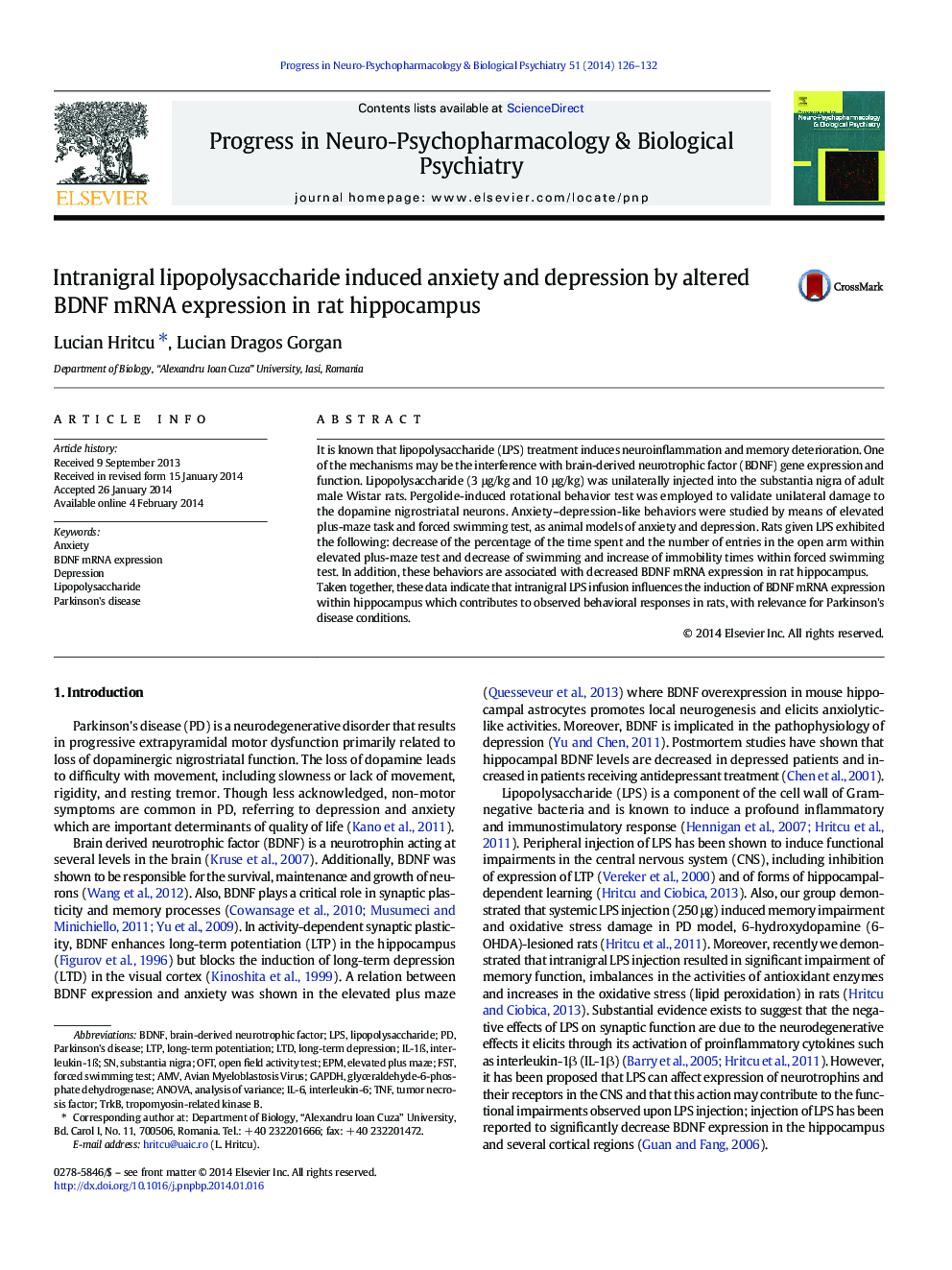| Article ID | Journal | Published Year | Pages | File Type |
|---|---|---|---|---|
| 2564850 | Progress in Neuro-Psychopharmacology and Biological Psychiatry | 2014 | 7 Pages |
•Intranigral LPS administration produced anxiety–depression-like behaviors.•Intranigral LPS administration altered BDNF gene expression in the rat hippocampus.•Behavioral response to intranigral LPS is correlated with the BDNF gene expression.
It is known that lipopolysaccharide (LPS) treatment induces neuroinflammation and memory deterioration. One of the mechanisms may be the interference with brain-derived neurotrophic factor (BDNF) gene expression and function. Lipopolysaccharide (3 μg/kg and 10 μg/kg) was unilaterally injected into the substantia nigra of adult male Wistar rats. Pergolide-induced rotational behavior test was employed to validate unilateral damage to the dopamine nigrostriatal neurons. Anxiety–depression-like behaviors were studied by means of elevated plus-maze task and forced swimming test, as animal models of anxiety and depression. Rats given LPS exhibited the following: decrease of the percentage of the time spent and the number of entries in the open arm within elevated plus-maze test and decrease of swimming and increase of immobility times within forced swimming test. In addition, these behaviors are associated with decreased BDNF mRNA expression in rat hippocampus.Taken together, these data indicate that intranigral LPS infusion influences the induction of BDNF mRNA expression within hippocampus which contributes to observed behavioral responses in rats, with relevance for Parkinson's disease conditions.
